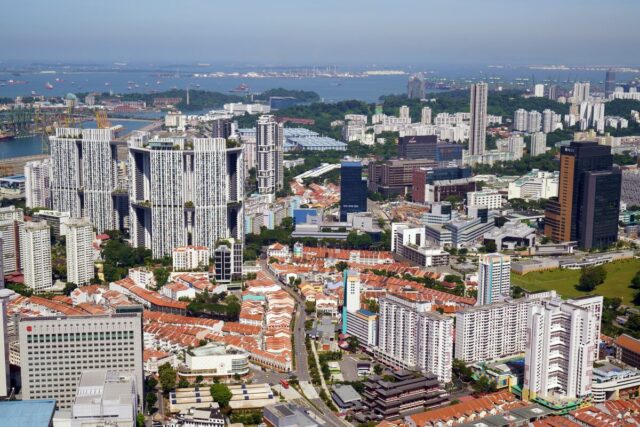
Foreign investors continue to show interest in buying property in Singapore. With its stability and strong economy, the country attracts buyers who seek a safe environment for their investments. However, navigating the process of purchasing property here can be complex for foreign buyers.
It’s essential to understand the options available for financing your property in Singapore and the potential hurdles along the way. Let’s explore some strategies to help you finance your investment effectively.
Understanding the Market in Singapore

Before diving into the various ways to finance a property, it’s important to be familiar with the property market. Singapore’s property market operates differently compared to many other countries. As a foreign investor, it’s essential to know the types of properties available and whether you are eligible to purchase them.
For instance, foreigners can buy private properties, but public housing is typically restricted. Properties like Parktown Residence offer luxurious living spaces that might appeal to foreign buyers. Make sure to review the available types of properties and how they align with your investment goals.
Down Payments and Cash Flow
As a foreign buyer, one of the first costs you’ll face is the down payment. The required down payment can be substantial, so it’s critical to prepare for this early. In Singapore, the down payment for foreigners can range between 20% to 25% of the property price. This can vary based on whether you are taking a loan and the nature of your property purchase.
Many foreign investors opt to set aside cash or liquid assets to cover the down payment. Ensure that you calculate the total amount you’ll need before entering the market, as the initial cash outlay can affect your overall financial strategy.
Foreign Property Loan Options

Foreign investors can apply for property loans from local or international banks. However, the process might differ from what you’re used to in other countries. Banks in Singapore offer loans specifically tailored to foreigners, though they usually come with specific conditions. It’s important to contact multiple banks to compare loan packages and ensure that the terms align with your financial situation.
Loan-to-Value (LTV) Ratio
Another important factor to consider when financing your property purchase is the Loan-to-Value (LTV) ratio. For foreign buyers, Singapore banks typically offer an LTV of around 60%. This means that the bank will loan you up to 60% of the property’s value, and you’ll need to cover the rest through your own finances.
This LTV ratio is lower for foreigners compared to local buyers, so it’s crucial to plan your budget accordingly. Ensure that you have enough funds to cover the portion that the loan will not.
Additional Buyer’s Stamp Duty (ABSD)

Foreign investors are subject to an Additional Buyer’s Stamp Duty (ABSD) when purchasing property in Singapore. The ABSD rate for foreign buyers currently stands at 60%. This significant cost is something you need to account for in your financial planning.
Many investors overlook this fee when preparing their budget, only to face unexpected costs later in the process.
To avoid surprises, include the ABSD in your calculations early on. It’s one of the key costs that must be settled upfront. Make sure that your financing plans accommodate this expense.
Legal Fees and Other Charges
In addition to the ABSD, there are other legal fees and charges that need attention when buying property in Singapore. These include conveyancing fees, mortgage fees, and valuation costs. Legal fees typically range between 0.5% to 1% of the purchase price. Don’t forget to allocate funds for these expenses as they are part of the overall cost of the purchase.
While the legal fees may seem small compared to the down payment or ABSD, all these charges add up. Make sure you plan for them so they don’t strain your cash flow unexpectedly.
Working with a Mortgage Broker

Navigating the property loan landscape in Singapore can be challenging for foreign investors. A mortgage broker can assist in simplifying the process. They can help compare loan packages, explain complex terms, and negotiate with banks on your behalf. Brokers are especially useful for foreign buyers who are unfamiliar with local procedures.
Make sure to choose a reputable broker with experience handling cases for foreigners. They can help you secure the best deal while saving you time and effort.
Conclusion
Financing your property purchase in Singapore as a foreign investor requires careful planning. From down payments to foreign property loans, there are several factors to consider. Make sure to factor in additional costs like the ABSD and legal fees.
By understanding all these aspects and planning for them, you can successfully finance your property purchase without unnecessary stress. Reach out to banks, mortgage brokers, and financial advisors to ensure you have the right information to guide your investment.









